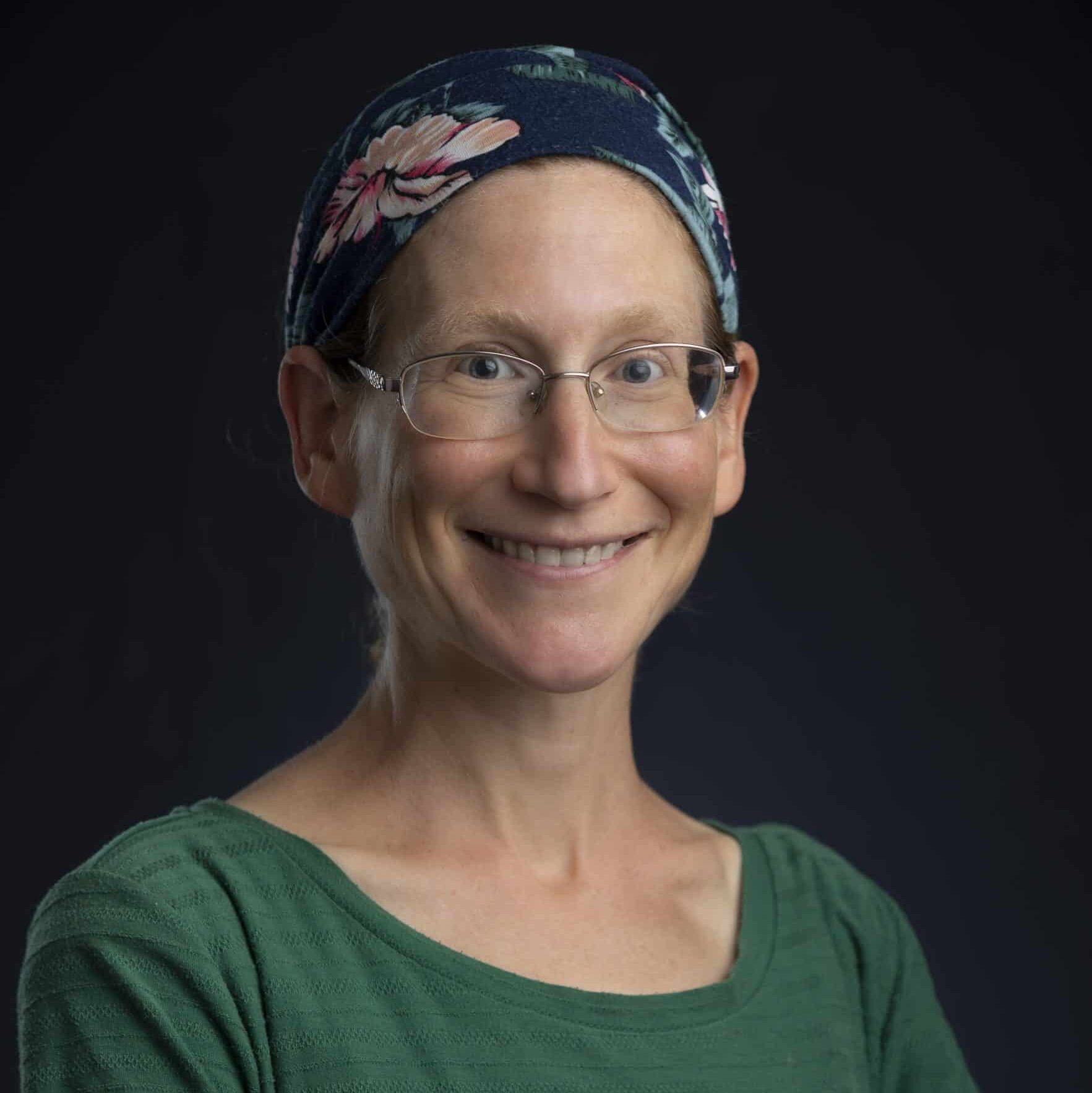Most public buses in Israel feature a sign that quotes from a verse in this week’s parashah: “You shall rise before the aged” (Leviticus 19:32).
Old age as frailty
The sign is intended as a reminder that if an elderly person boards the bus, a younger person who is already seated should offer to give up his or her seat. The use of this verse in such a context suggests that old age is a time of increasing frailty, and thus the elderly should be offered the opportunity to sit and rest while traveling across town.
But the Talmudic discussion of this verse presents a deeper understanding of the commandment to rise before the aged, offering a new way to think about how we regard those in our society who are advanced in years.
The TalmudReferring to one of two collections, the Jerusalem and Babylonian Talmuds, edited in the 6th century, that contains hundreds of years of commentary, discussion, and exploration of the ideas in the Mishnah. One could describe it as Mishnah + Gemara = Talmud Read more in tractate Kidushin 32b discusses the implications of the commandment to stand before the aged as it appears in full in a single verse from our parashah: “You shall rise before the aged and show reverence to the old, you shall fear your God: I am the Lord (Leviticus 19:32).”
Instances of respect and reverence to the elderly
The rabbis question whether the commandment applies in all contexts—is it necessary to stand before an elderly person if the encounter takes place in a bathroom, or in a public bathhouse?
To answer this question, they draw on the middle of the verse, which mandates showing reverence. The rabbis explain that the mitzvah of standing applies only in a “place of reverence,” unlike a bathroom or bathhouse, which is a private place. In the bathroom, we are all just people, regardless of our age and stature; most of us would rather be anonymous. To stand before an elderly person in such a setting is inappropriate, as it is more likely to embarrass that person than to accord respect.
According to this understanding, the commandment to stand before the elderly is not about the physical frailty that comes with age, but about the respect we accord to those more advanced in years.
Leaving the bathroom question aside, the rabbis further inquire whether we are permitted to close our eyes if we see an elderly person approaching.
What if we wish to avoid the awkwardness of displaying reverence? Can we just look the other way and pretend not to see that person, or even turn a sharp corner to avoid the encounter altogether?
The fear of God
The rabbis insist that no, it is necessary to acknowledge any elderly person who comes within a four-cubit distance. As proof, they juxtapose the beginning and the end of the verse: “You shall stand… and you shall fear your God (Leviticus 19:32).”
The rabbis explain that the phrase “and you shall fear your God” appears in the TorahRefers to the first five books of the Hebrew Bible, the Tanakh, also called the Five Books of Moses, Pentateuch or the Hebrew equivalent, Humash. This is also called the Written Torah. The term may also refer to teachings that expound on Jewish tradition. Read more in situations when only God can know what is really happening.
When we stand before the elderly, we must do so with fear and reverence for the One who knows the secrets of our hearts; we can’t deliberately look away, because there is no looking away from the Omnipresent. This explanation suggests that standing before the old is tantamount to fearing God—perhaps because when we accord respect to the old, we train ourselves to act with reverence, thereby better serving God.
The rabbis question whether all old people must be treated with reverence.
Rabbi Yossi HaGlili offers a fascinating answer: “There is no elder except one who has acquired wisdom” (Kiddushin 32b), implying that “elder” is a synonym for a wise sage. In the midrashThis word is used in two ways, as both a concept and a literature. As a concept, midrash is the expansive interpretation of biblical texts. The term is used to describe the practice of rabbinic interpretation. As a text, it refers to specific collections of interpretations, particularly from the third to ninth centuries in the Land of Israel and Babylonia. Plural: Midrashim
Read more on the book of Leviticus, Rabbi Yossi HaGlili further explains that the term for an old person, zaken, is short for ze kana hochma, meaning “this one acquired wisdom” (Sifra Kedoshim 3.7.12).
Age and wisdom
According to this understanding, age is not a chronological marker, but a sign of sagacity.
Rabbi Yossi HaGlili thus invests the rabbis with the esteem and prestige that our parashah accords to the elderly.
No wonder, then, that the Talmud shifts from discussing the commandment to rise before the aged to discussing the commandment to rise before a Torah scroll. We stand before the elderly not by virtue of their age, but by virtue of the wisdom they have gained over the course of a lifetime. If age is less about wrinkles than about wisdom, then who decides who counts as old?
The Talmud tells a story about two sages, Rabbi Ilai and Rabbi Yaakov bar Zavdi, who were once sitting and studying Torah when the elderly Rabbi Shimon bar Abba passed by. They stood up before him in reverence. Rabbi Shimon bar Abba responded by rebuking them, insisting that they were wrong on two counts: “First, you are Torah scholars, and I am just an associate [haver]. And furthermore, does the Torah stand before those who study it?” (Kiddushin 33b).
Rabbi Shimon bar Abba is offended; why should the students stand before him just because of his age? What matters is not age, but wisdom, and they have acquired more wisdom than he. Moreover, anyone who is engaged in Torah study is considered like a Torah scroll, and the Torah does not stand before those who study it.
In a parallel text in the Jerusalem Talmud (Bikkurim 3.3 [65c]), (Yerushalmi Bikkurim 3:3 [16]) Rabbi Shimon bar Abba insists “I am not old,” and tells the pair of scholars, “Does the Torah stand before its son?”—implying that wisdom essentially inverts chronological age.
Older but not necessarily wiser
Older does not necessarily mean wiser, but wisdom effectively makes you older.
Rabbi Shimon bar Abba insists that the pair of younger scholars should not rise for him, because they are the greater scholars in spite of their youth. Moreover, he declares that he, himself, is not old, because he still has so much more to learn.
In a recent book about aging in rabbinic literature, Mira Balberg and Haim Weiss discuss the “ethos of Torah learning as an anti-aging mechanism,” whereby a continued engagement with Torah ensures that the scholar remains young, while also warding off the Angel of Death (see Balberg and Weiss, When Near Becomes Far [Oxford University Press, 2021]).
But what is true of Torah learning is perhaps true of other intellectual activity as well. So long as we remain animated and engaged by all that we have left to learn, we will retain some of the vigor of youth in spite of the infirmities of age.
I like to imagine that one day, when I am older and more wrinkled, I will board a bus carrying a heavy volume of Talmud, and a young person will offer me a seat.
I won’t take it for myself, but perhaps I’ll take it for the sake of Torah—so that I might open the volume of Talmud and sink into my seat and learn.
See more: Parashat Kedoshim
Originally posted as part of the Conservative Yeshiva at the Fuchsberg Jerusalem Center’s Torah Sparks. Support Torah learning from the Fuchsberg Jerusalem Center/Conservative Yeshiva for leaders and seekers around the world here.
Authors
-

Ilana Kurshan teaches Talmud at the CY. She is the author of If All the Seas Were Ink (St. Martin’s Press, 2017) and Why is This Night Different From All Other Nights (Schocken, 2005). She has a degree in History of Science from Harvard and in English literature from Cambridge, and has worked in literary publishing both in New York and in Jerusalem – as a translator, a foreign rights agent, and as the Books Editor of Lilith Magazine. Since October 2020, Ilana has been a regular contributor to Torah Sparks, FJC’s weekly parashat hashavuah blog.
View all posts -



The Fuchsberg Jerusalem Center (FJC) is a home in the heart of Jerusalem where leaders and seekers can find an authentic place in Jewish tradition to call their own. FJC offers opportunities to study, pray and explore within an egalitarian and inclusive setting, creating multiple pathways for finding personal and communal meaning.
View all posts






